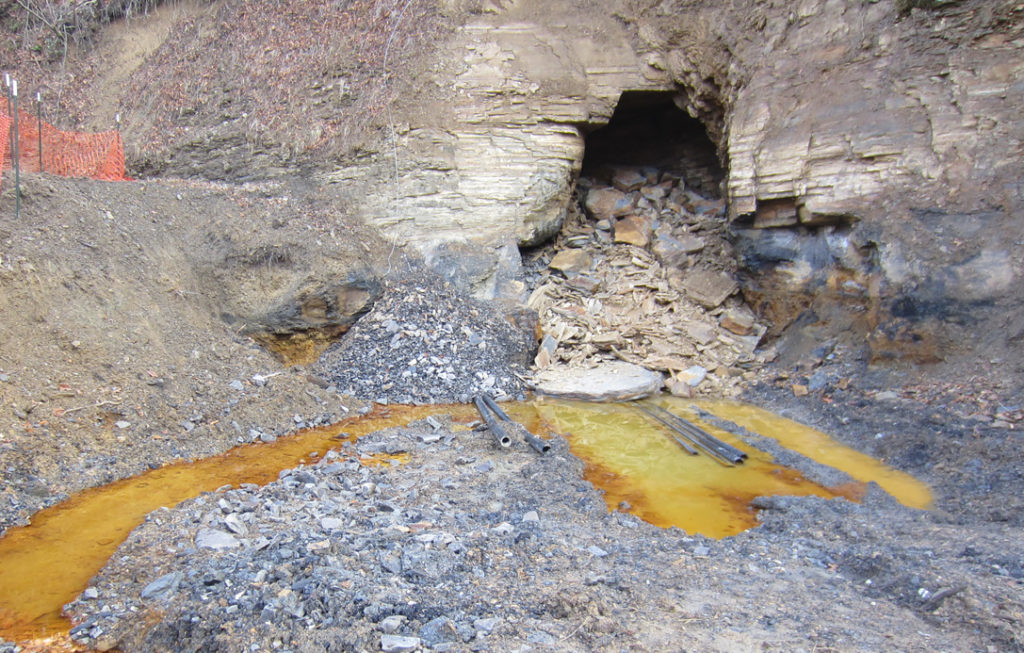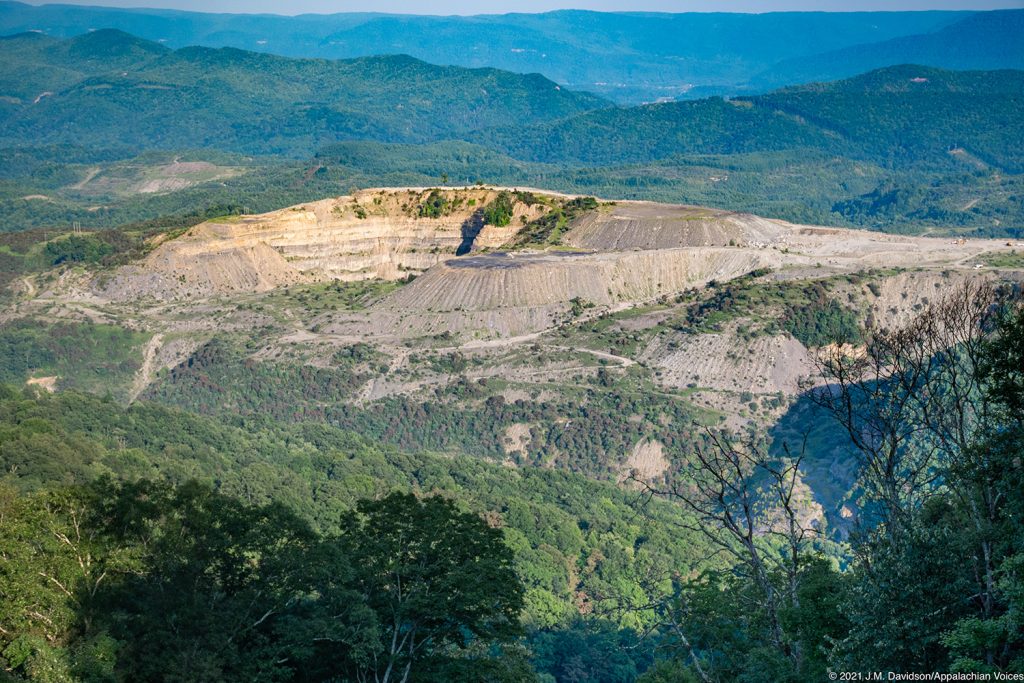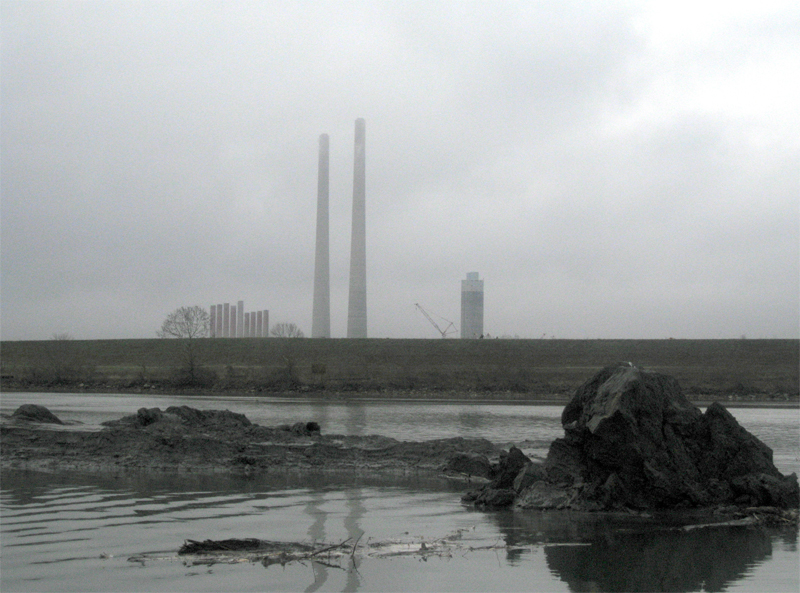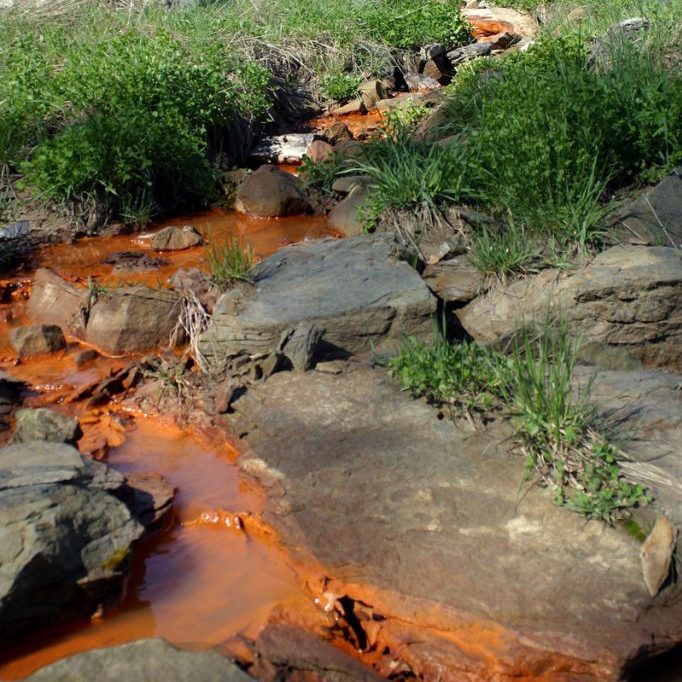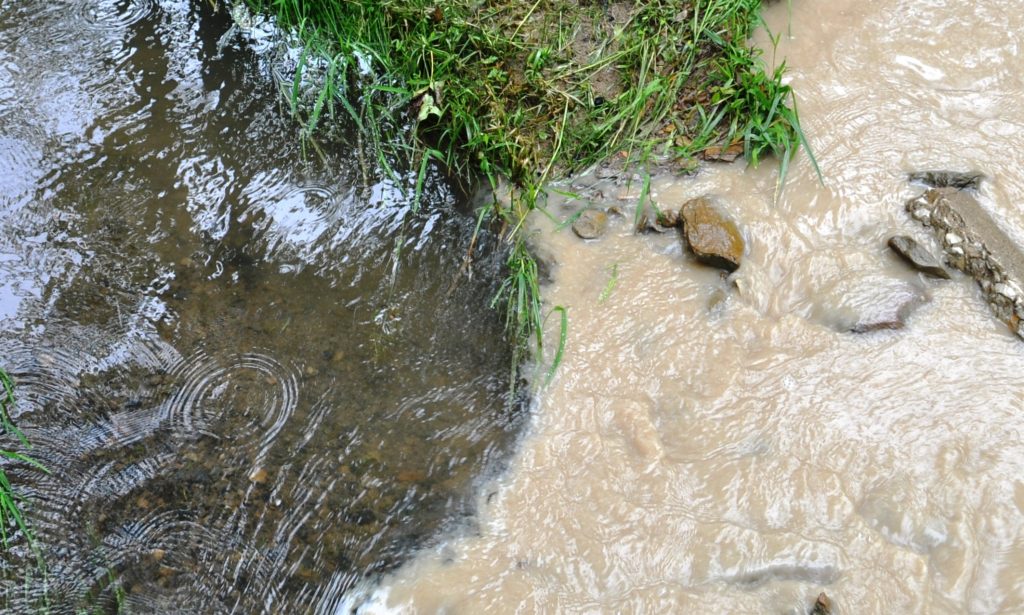Holding the Coal Industry Accountable

An abandoned and decaying structure at the Sugar Cove Mine in Virginia. Photo courtesy of DMME
Centuries of coal mining in Appalachia have left a wake of destruction behind. Thousands of former mine sites still pose health and safety risks, and the extensive environmental damage includes polluted waterways, compromised groundwater, and the loss of 1.5 million acres of forest in one the most biologically diverse temperate ecosystems on the planet.
Residents in this region have dealt with increased illness and shortened life expectancy. Black lung disease is again on the rise, and both current and former miners are fighting to protect their vital healthcare benefits. Communities that depended on the coal industry’s boom years now face daunting financial challenges.
Meanwhile, the bosses and bankers who got rich off of Appalachia realize that the market for coal is continuing to decline. Many are trying to jump ship, taking their wealth with them and leaving the problems for local communities and taxpayers to deal with.

As Appalachian Voices continues to fight new mountaintop removal coal mining permits and monitor existing mines, we are also committed to ensuring that the communities that have long borne the brunt of mining are not left behind. We are determined to hold the coal profiteers responsible for cleaning up the land and water they defiled and fulfilling their obligations to miners and their families.
Communities near mines and power plants are among those that often face elevated air pollution. We’re working with 16 community groups and two universities to track air quality in communities throughout Kentucky, Pennsylvania, Tennessee, Virginia and West Virginia with about 80 monitoring devices. These are deployed at in communities near fossil fuel infrastructure and other industries.
Similarly, the communities living near coal-fired power plants have suffered the burden of air and water pollution created by burning coal for electricity. Our years-long campaign alongside North Carolina communities impacted by Duke Energy’s dangerous storage of coal ash resulted in statewide cleanup orders, and we are committed to making sure the massive utility follows these rules.
We’re also working with communities in East Tennessee, site of the first major coal ash disaster in the country, to ensure that coal ash is stored in ways that protect residents, workers and waterways. And we’re engaged in legal challenges against Trump-era rollbacks on federal regulations for coal ash handling.
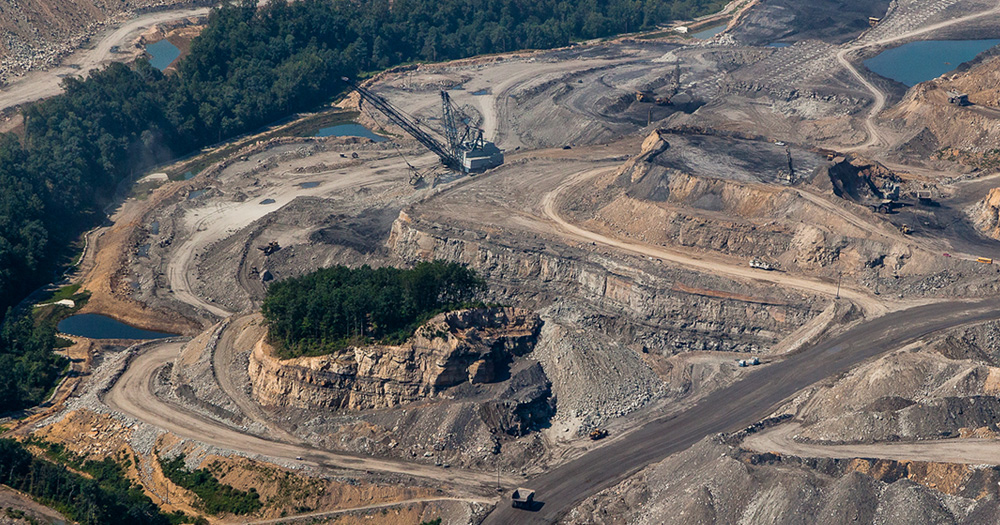
Ending Mountaintop Removal
Since the 1970s, the coal industry has blown up more than 500 of the oldest, most biologically rich mountains in America and destroyed more than 2,000 miles of headwater streams. Despite an ongoing citizen movement to end the destruction, and despite the decline in coal, it’s still happening.
Protect coal miners: Oppose cuts to NIOSH and MSHA
Black lung disease continues to ravage coal mining communities, despite regulations that are supposed to make their job safer. Unfortunately, the federal agencies that provide essential health services to miners are facing cuts.

Latest News
Today, I prayed we #kickcoalash
 Guest Contributor Caroline Rutledge Armijo: On Sunday, Residents for Coal Ash Clean Up met on Belews Lake, overlooking the smokestacks at Duke Energy’s Belews Steam Station in Stokes County, N.C. Today marks the one year anniversary of the coal ash spill into the Dan River, the third largest coal ash spill in our nation’s history but likely a drop in the bucket of what would happen if there was a spill at Belews Creek.
Guest Contributor Caroline Rutledge Armijo: On Sunday, Residents for Coal Ash Clean Up met on Belews Lake, overlooking the smokestacks at Duke Energy’s Belews Steam Station in Stokes County, N.C. Today marks the one year anniversary of the coal ash spill into the Dan River, the third largest coal ash spill in our nation’s history but likely a drop in the bucket of what would happen if there was a spill at Belews Creek.
A silver lining in EPA’s Coal Ash Rule
Exposed: Linking Human Health and the Environment
As an assortment of pollutants leach into our lives, the harmful effects continue to surface in public health. Read about the connections between human health and environmental concerns associated with energy, pesticides and climate change. This article is featured in an Appalachian Voices webinar
Corruption and Enforcement Failures Raise Concern for Clean Water
Recently uncovered conspiracies to violate the Clean Water Act have heightened concerns about corruption in central Appalachia and the effectiveness of state agencies responsible for enforcing the law.
Seeking Justice: Activists and agencies react to systemic violations of mining laws
James C. Justice is the rare, modern-day coal baron who actually resides in Appalachia. Despite his local ties, Justice-owned operations in five states have earned him a reputation among environmental advocates as one of the region’s worst violators of mining laws.
Long-Awaited Coal Ash Bill Leaves Communities at Risk
This September, North Carolina’s first bill regulating the disposal of coal ash became law. Legislators praised the law as the strongest in the nation, but environmental groups and citizens living next to coal ash ponds say it is not strong enough.

